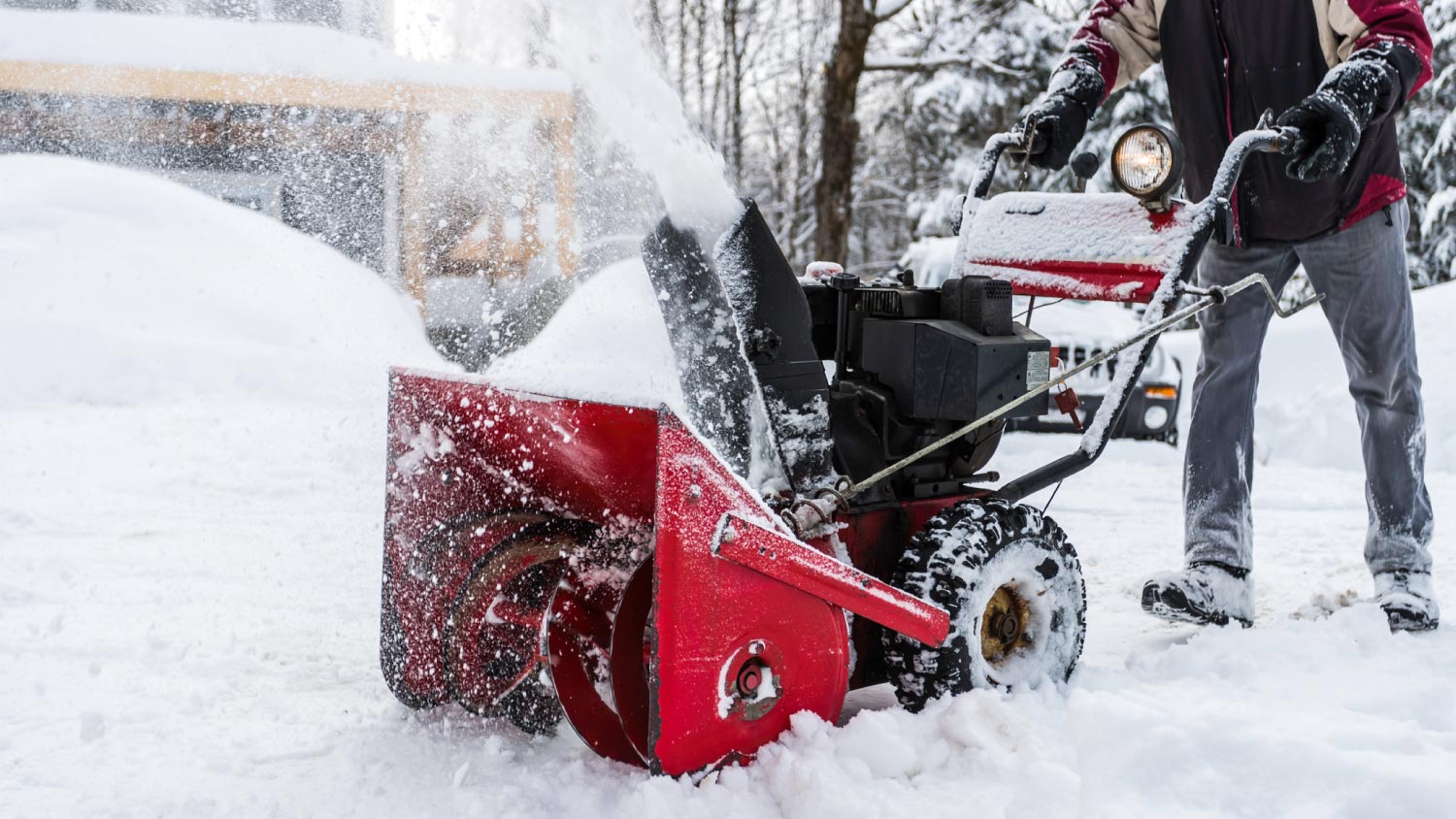
Get the latest snow removal cost estimates, including average prices, key cost factors, and tips to help homeowners budget for safe, efficient snow removal.
Don’t let icy steps get you down—weigh the pros and cons of one popular deicer


Magnesium chloride is one of many popular ice removal agents, ideal for use in extremely low temperatures.
This chemical compound is more effective than rock salt at removing ice from driveways.
Magnesium chloride is fast-acting, minimally corrosive, and environmentally-friendly.
Some drawbacks of using magnesium chloride include its higher cost and the need to apply it in larger amounts.
No one likes to go slipping and sliding down the driveway in the winter. You can keep outdoor surfaces safe during the winter by using magnesium chloride for driveway ice removal. However, if you’re unsure if this compound is right for you and your family, learn more about the pros and cons of this deicing option to determine whether it’s the right fit for your home.
Magnesium chloride is a naturally occurring salt that lowers the freezing point of water. Magnesium chloride melts ice quickly and efficiently due to its hygroscopic properties, meaning it absorbs moisture easily. When you apply this material to icy surfaces, it transforms into a brine by drawing in moisture from the surrounding air, resulting in the rapid melting of the icy layer. You can find magnesium chloride in small and large quantities at most home improvement stores.
| Pros of Magnesium Chloride | Cons of Magnesium Chloride |
|---|---|
| Works in low temperatures | More expensive than other ice removal methods |
| Causes limited corrosive damage | Need to apply in larger quantities |
| Leaves less residue than other methods | |
| Fast-acting melting | |
| Causes less damage to green spaces | |
| Less likely to cause skin irritation |
When it comes to making your walkway safe for snowball fights and heading out to the car, magnesium chloride has some major ice-melting benefits.
Magnesium chloride is an effective solution for icy walkways, stairs, and driveways down to about -5 degrees Fahrenheit.
Magnesium chloride causes less corrosive damage to concrete, stone, tiles, and outdoor vegetation than some other ice removers. Since it’s naturally occurring, magnesium chloride is considered environmentally friendly.
Ice melt and rock salt products can be messy. When the salts dissolve into a brine, they can adhere to shoes and leave unsightly messes on indoor surfaces. Magnesium chloride leaves less residue than other products and is less likely to make it from the outdoors to the indoors.
Magnesium chloride can melt ice and snow twice as fast as rock salt, another common deicer. The quicker action means magnesium chloride is better for heavily trafficked areas.
Salts from deicers build up over the winter. When snow and ice begin to melt and the water runs off, these salts can damage grass and other vegetation. Magnesium chloride is gentler on greenery than other options, resulting in less damage to your outdoor green spaces.
Magnesium chloride is less likely to cause skin irritation than other deicing options, making it a safer choice if you have pets or children who may come into contact with the material. Also, it is less likely to damage your skin during application, though wearing gloves and eye protection is still advised.

However, depending on your needs, magnesium chloride may not be the ice melt solution for you.
Magnesium chloride is more expensive than both calcium chloride and rock salt. Magnesium chloride generally costs $20 for 25 pounds compared to $20 for 50 pounds of calcium chloride or $10 for 50 pounds of rock salt.
You’ll need to apply magnesium chloride in higher quantities than other ice melt products like calcium chloride. With the higher cost, magnesium chloride might not be an economical solution if you live in a high-ice area.
Magnesium chloride is only one effective option for ice removal. Depending on your ice-removal needs, you may find that one of these other alternatives is better for the job. Make sure to weigh the pros and cons before using another de-icing method, including these options:
Potassium chloride
Calcium chloride
Snow melting mats
Hot water
Using a shovel or other types of snow removal equipment
Homemade solutions (sand, coffee grounds, vinegar, rubbing alcohol, fertilizer, etc.)
Magnesium chloride is ideal for homeowners who want a fast-acting, less corrosive, and environmentally friendly option. If you live in an area with extremely low temperatures and icy conditions, spending a bit more on magnesium chloride may be worth the investment. Before using magnesium chloride, make sure to have a thorough understanding of how to safely use it on your property.
Even though brands often advertise magnesium chloride products as safe and natural, it's still best to prevent contact with your skin, eyes, and mouth. On top of this, you're working with slippery surfaces in the cold, so it's in your best interest to wear gloves, work boots, and protective clothing anyway. If you choose liquid magnesium chloride, goggles and a mask are necessary as well. Or hire a local snow removal service to deice your walkways to ensure best results.
From average costs to expert advice, get all the answers you need to get your job done.

Get the latest snow removal cost estimates, including average prices, key cost factors, and tips to help homeowners budget for safe, efficient snow removal.

Discover the cost to install snow guards. Learn about average prices, key cost factors, and tips to save on your snow guard installation project.

Snow throwers and snow blowers are often named interchangeably, but they aren’t the same. Learn the main differences between a snow thrower vs. snow blower.

Prepping and starting a snowblower properly is crucial for longevity and efficient operation. Find out how to start a snowblower.

Snow blowers and snow plows are both excellent snow removal tools, but each has pros and cons. Learn the key differences between a snow blower vs. plow.

Knowing what to put on an icy sidewalk is just part of the battle when the temperature drops. Here are more tips for an ice-free walk.